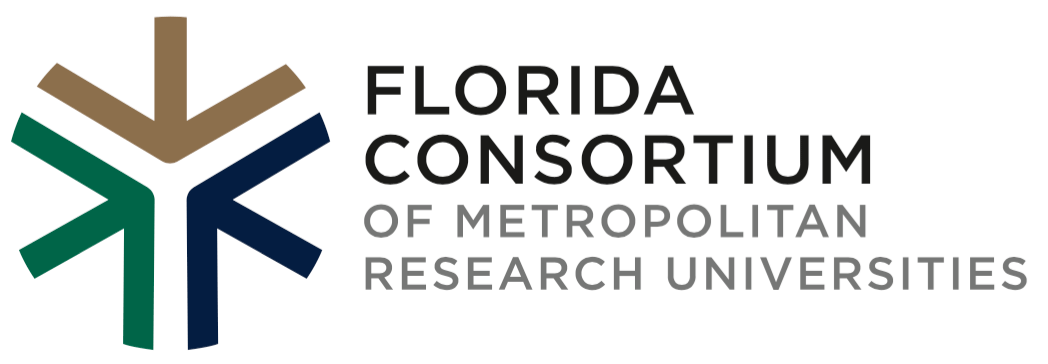MIAMI / ORLANDO FL – STEM education is an essential component to the Florida Economy. These careers rooted in Science, Technology, Engineering and Math are part of the fastest growing segment of the United States economy and is increasingly STEM trained college graduates are becoming in short supply. In 2014, the Florida Chamber of Commerce reported that there were over 55,000 unfilled STEM jobs in Florida alone. These employment opportunities tend to be higher paying and with a greater growth potential than many careers that require specialized training or a college degree. As this field expands the Florida Consortium is dedicated to making sure that any student who attends FIU, UCF, or USF and wants to pursue a STEM field of study has the support they need to succeed. On December 9th, 2015 over 20 faculty from various STEM focused programs at Florida International University, the University of Central Florida, and the University of South Florida came together to discuss student success in STEM fields of study and how to best support each other in assisting students become better students and find a successful career. In June of 2015 the Florida Consortium was awarded a grant from the Leona M. and Harry B. Helmsley Charitable Trust. Through the grant faculty at all three Consortium universities will work together to increase interest in STEM programs of study, find better support systems for STEM students, increase diversity in STEM education, and broaden opportunities for STEM students to find a great, first career opportunity in the state of Florida.
Currently the three universities included in the Florida Consortium produce 47% of all STEM degrees awarded in the state. More importantly, Florida Consortium Universities support a strong diverse community in who they graduate. In their 2012-2013 report on Latino STEM success the Washington D.C. think tank Excelensia in Education reported Florida International University as the number one university for Latinos graduating with a bachelors or masters degree in STEM in the lower 48 states. Not to be outdone, the University of Central Florida ranked #10 for bachelors degrees and #18 for masters degrees awarded to Latinos in STEM and the University of South Florida also ranked in the top 50 universities in both categories. But there is much more work to be done.
During their meeting, faculty committed to a number of collaborative initiatives including:
- Designing a more robust predictive analytic platform aimed at better guiding students during their course of study. This platform can assist advisers and faculty ensure “just in time” interventions and assure students are taking courses in the right sequence for maximum gains.
- Developing a STEM “Boot Camp” designed for incoming students to better understand and prepare for the rigors of their degree program. This camp will allow students to take assessments and learn from faculty in an environment that will allow them to get feedback on their chances for success in their chosen field. This will hopefully serve to encourage students to pursue STEM but also set realistic expectations for long-term success.
- Invest in a culture of STEM success by creating an environment that reaches out to students beyond the classroom and the lab. Students will learn the transferable skills they will need to land that first job and work with their career services areas to not only find their dream job but to walk into their interview prepared.
- Coordinate with regional employers to provide more internship opportunities for students to find traction in the job market. When a student is awarded an internship 60% of the time that internship results in a full-time offer.
In order to complete their task faculty were divided into Faculty Learning Communities at each institution. The FLCs are currently meeting on each member campus and are scheduled to meet for their first all faculty gathering in Tampa at the University of South Florida on February 12th.

The Florida Consortium of Metropolitan Research Universities aims to produce more career-ready graduates with lower debt, better training and workforce skills that meet the demand of Florida’s growing economy. The Florida Consortium is a collaborative endeavor between Florida International University, the University of Central Florida, and the University of South Florida. Operationally formed with consultation and support from the Helios Education Foundation, the Consortium will grow the number of degreed professionals and positively impact Florida’s economic development. Consortium institutions serve 47% of State University System total enrollment and 54% of the state’s undergraduate minority enrollment.


